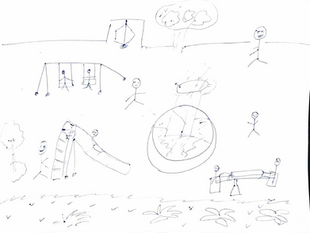
18 June, 2021

Image Credit: Mike Tinnion at Unsplash
Is the pen really mightier than the sword? Is language powerful? How powerful?
In an encounter between Faiz Ahmad Faiz and Pablo Neruda, recollected and documented by Faiz's daughter, the legendary poets spent the night narrating their creations to each other. Faiz spoke Urdu and Neruda spoke Spanish. To begin with, the translators helped. As the night progressed, the poets narrated in their own languages and everyone seemed to understand perfectly.
In another instance shared by Faiz's grandson, the nazm 'Hum dekhenge' written by the poet in Pakistan in 1979 against the tyranny of President Zia-ul-haq had sparked a revolution. When Iqbal Bano sang the nazm amidst a gathering of political activists wearing a black sari, banned by the then regime, it became a symbol of freedom from oppression for generations to come not only in Pakistan but in India too.
These instances relating to the same poet demonstrate something diametrically opposite - the feebleness and the power of language respectively. Language can be extremely powerful as well as absolutely unnecessary. On one hand, it can play a huge role in shaping opinions and culture; on the other, it may hardly matter if people can understand the feeling behind the chosen words. Shakespeare for that matter created his own genre of language known as Shakespearean English.
What is the point, then? Amid the contradiction, there is a commonality. Here is an example. In one of his interviews, Gulzar Sahab talked about the usage of the word dawakhana - the Urdu word for a pharmacy or a dispensary. If the 'kha' in dawakhana doesn't come from the epiglottis, not only the meaning will change but the language will change too. Dawa khana in Hindi, with a slight differentiation of pronunciation, means 'eating medicine.'
In one of the reminder emails for an official meeting, a 'gentle' reminder became a 'genital reminder' by courtesy of the autocorrect option. So, either I create my own language or handle the ones I know with care, love and empathy. The legendary poets did not need translators that night because they were the masters of their languages - their passion spoke rather than the words.
In India, more than 19, 500 languages or dialects are spoken as mother tongue. Very rightly, the New Education Policy 2020 has placed an increased emphasis on language but the implementation is yet to be seen.
I close with a toast to the power of language - subtle but profound! 🥂
Now published:
https://www.linkedin.com/feed/update/urn:li:activity:6968880337686806529/


